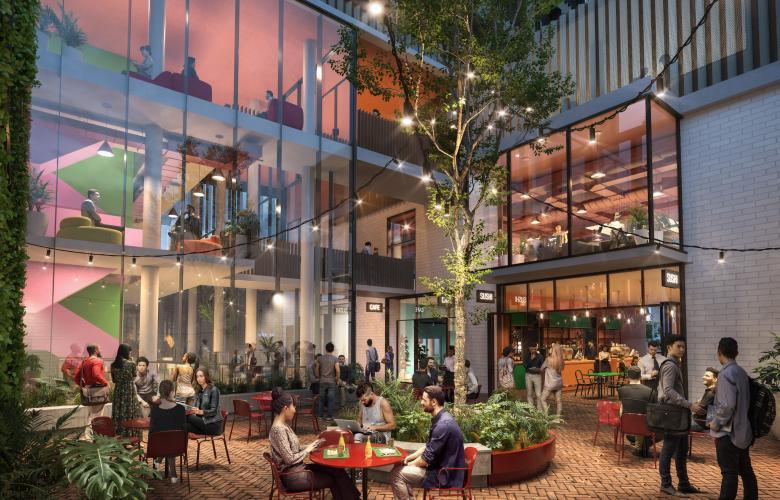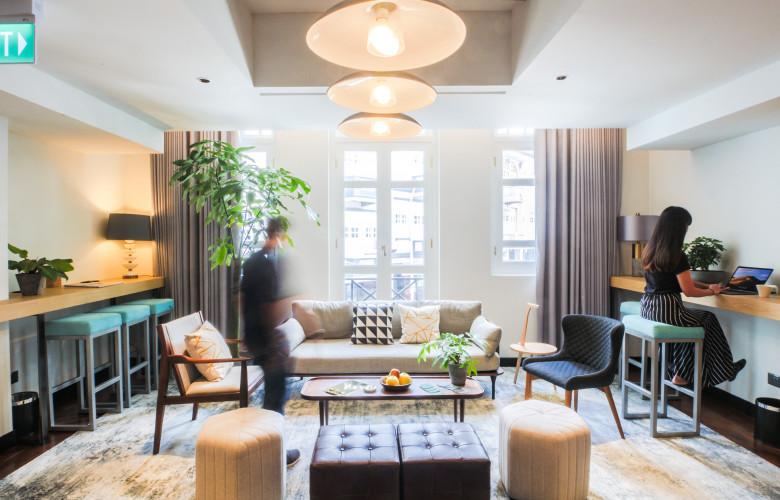Can International students save Australian student housing sector?
Contact
Can International students save Australian student housing sector?
Australian landlords hoping to rent their units to foreign students are going through a painful period in which international student numbers are steadily declining. Juwai IQI today released this outlook for the sector.
Australian landlords hoping to rent their units to foreign students are going through a painful period in which international student numbers are steadily declining. Juwai IQI today released this outlook for the sector.
"Eight months ago, we advised investors to hold on to their inner-city property if they could afford to, but that there would be pain before gain," said Juwai IQI Co-Founder and Group Executive Chairman Georg Chmiel.
"My advice is the same today. These assets have depressed values now, so it's a poor time to sell. They are likely to gain value again relatively quickly as the student population rebuilds after travel restarts. This is a good market for investors who are brave enough to buy while prices are down.
"It is disastrous for investors who purchased at the high prices of the last couple of years. It is less so for those who no higher than what they have fallen back to this year.
"In the Inner West of Sydney, the average asking price for units has fallen by 9.8% over the past 12 months. In the same area, rents are down 8.8% compared to a year ago. The Inner West of Sydney is an area that contains several suburbs popular with international students.
"Asking prices in the Melbourne city centre are down 8.1% compared to 12 months ago. Rents have plummeted a shocking 20.1%. In Melbourne, the CBD has traditionally housed a large number of international students. Before the pandemic, international students made up more than 30% of residents in some Melbourne suburbs.
"Borders are likely to be closed at least until next year, so the situation will probably get worse before it gets better.
Landlords Losing $5,000 in Rent, But Vacancy Rates Have Improved
"In the Inner West of Sydney, landlords are asking 8.8% less for rent than a year ago. That works out to an annualized loss of more than $2,200 per landlord.
"Landlords in Melbourne City are now asking 20% less for rent than they were a year ago. Annualized, that works out to nearly $5,000 a year in rent. Gross rental yields in Melbourne City have dropped from 4.2% a year ago to 3.7% today.
"Universities alone lost $8.8 billion in 2020 because of the loss of so many foreign students. They will likely lose much more than that this year.
"Vacancy rates are back to their pre-pandemic levels in several of the hard-hit suburbs. Some landlords have sold out to owner-occupiers, and others have dropped their rents enough to attract tenants from other areas. So, for the most part, these apartments are no longer sitting empty. There are no ghost towns, but landlords have taken a beating.
"Every Australian capital city has a housing shortage, and average prices are booming, so apartments will always find a user if offered at the right price. National home values rose 7.0% over the past three months. That is the highest quarterly growth rate in more than 20 years.
International Student Numbers to Plummet by Two-Thirds
"By July of next year, the number of international students living in Australia will likely have fallen by more than two thirds. From about 500,000 in April 2020 to only about 165,000. More than 335,000 students who would have been living in some sort of housing here in Australia will probably be missing.
"The situation is bleaker in Melbourne, Sydney and Brisbane than in Perth or Canberra. Perth and Canberra still have high demand for rental apartments because workers are moving there from other parts of Australia. That more than makes up for the loss of international students in the rental market.
"Sydney and Melbourne are hurting more because they had the most to lose. The big East Coast cities have always attracted more international students than any other part of Australia. They have now lost the most students.
Big Student Housing Operators Investing More, Not Selling Out
"Companies like Scape that operate purpose-built, large-scale student accommodation are not giving up. It is not easy to convert these properties to regular rental apartments, but more importantly, they see the long-term potential. You can make a very credible case that Australian student numbers will grow in the post-COVID period to be higher than they were in 2019.
"By 2023, student housing operator Scape will have 10,000 more rooms for rent in Sydney, Melbourne and Brisbane than they do today.
"Australian student accommodation operators have some 100,000 beds and $3 billion of assets. Occupancy is down to just 25% on average -- meaning that 75% of their rooms are empty. They are suffering, but they also have deep pockets, a sophisticated outlook and a long-term time horizon. They are investing more and building more units, even though many of their rooms are empty today.
"Rather than folding their hands, student accommodation operators are doubling their bets. They expect 2021 to be hard, 2022 to be a recovery year and business to be relatively good from 2023. They are trying to find other users for their units in the meantime, such as Australian students, essential workers and interstate travellers. This is just a short-term effort to limit their losses until international students come back."
Similar to this:
Juwai IQI commits to achieving net zero emissions
Malaysians Buy More Property in Singapore than All but Chinese IQI Juwai
Real Estate Group welcomes Malaysian Prime Ministers Permai Package as good for the economy







